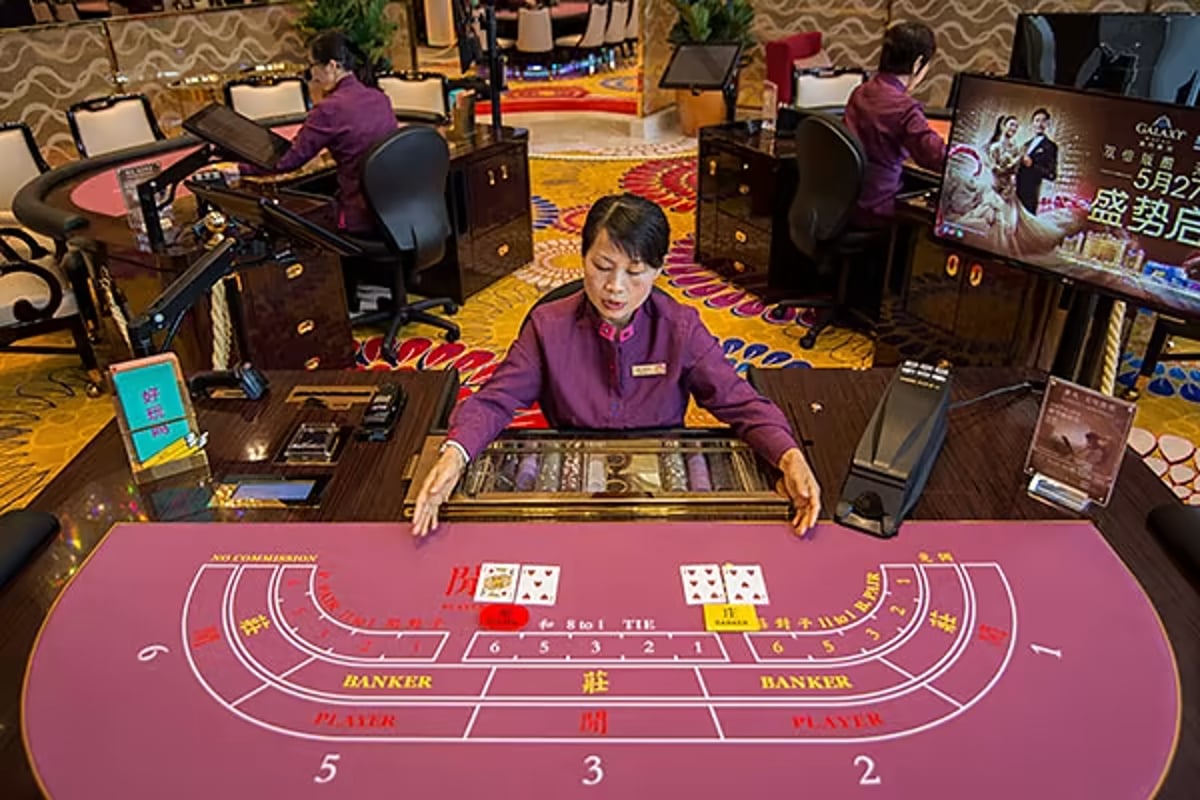Casino Games and Their Role in Cultural Trends

Gambling games have long captured the interest of humans around the planet, becoming an essential part of both fun and tradition. From the shimmering lights of Nevada to the immersive experience of online gaming, these games evoke thrill, danger, and sometimes even a sense of nostalgia. Sut88 They are beyond just pastimes; they have woven themselves into the tapestry of our lives, influencing everything from cinema and songs to clothing and writing.
The appeal of casino games goes beyond the wagering aspect, tapping into wider themes of fortune, chance, and psychology. As players convene around a poker table or spin the roulette, they engage in an age-old ritual that connects with our shared desire for thrill and unpredictability. This fascination has led to the emergence of countless references in cinema, tracks, and gaming, showcasing how deeply entrenched these activities are in popular culture. Whether it is the intense drama of a traditional caper or the vibrant nightlife portrayed in videos, casino games have established a substantial role that reflects our connection with reward.
Historical Importance of Casino Games
Gambling activities have played a key role in social aspects throughout history. Originating from ancient civilizations, games of chance were often linked to rituals or gatherings. For instance, early iterations of gambling can be linked back to ancient China and the Roman Empire, where dice games and wagering on results were popular pastimes. These games not only served as entertainment but also as methods of connecting people, facilitating connections among people within communities.
As societies evolved, so did the complexity and structure of gambling games. Game bài Sut88 The creation of official casinos in the 17th century, particularly in Italy, marked a notable shift in how games were perceived and structured. With specific spaces for gambling, the casino became a social hub where patrons from different backgrounds convened. This evolution contributed to the validation of the industry, transforming it from a mere pastime into an established industry that shaped economy and policy.
The impact of gambling activities on mainstream culture cannot be understated. As they were popularized in books and film, games such as poker and blackjack became symbols of risk, luck, and strategy. Iconic characters and narratives have developed around these activities, reflecting societal attitudes towards luck, prosperity, and immorality. This fascination with casino games has permeated various forms of media, cementing their place in the collective consciousness and linking them to wider cultural stories throughout the ages.
Representation of Gambling Activities in Entertainment
Casino activities have long been a popular subject in various forms of media, reflecting both the excitement and complexities of the world of gambling. Films such as Ocean’s Eleven and Casino Royal portray characters who navigate high-stakes environments, showcasing not only the attractiveness of the gambling environment but also the methods and judgments that come with playing popular games like poker and 21. These movies often dramatize the excitement of winning and the potential consequences of losing, encapsulating the dangers involved in gambling.
Television shows have also explored the realm of casino games, often integrating them into the storyline as a backdrop for story progression and conflict. Shows like Vegas depict the stories of gambling employees and customers, highlighting the vibrant, often chaotic energy of the casino floor. Reality shows featuring intense betting contests further emphasize the appeal of gambling activities, drawing viewers into the drama and planning involved in each session. Through these depictions, media not only engages but also sparks conversations about fortune, expertise, and the character of randomness.
Digital games have increasingly included casino games into their design, allowing players to recreate the feeling of gambling without financial risk. Titles within the realm of online gaming often include online slot machines, poker, and other popular casino games, creating an engaging environment that mirrors traditional gambling. These virtual portrayals make casino games accessible to a worldwide viewer base, appealing to both risk-takers and those who enjoy the thrill of simulation. As a consequence, the representation of casino games in media continues to shape cultural attitudes and importance, highlighting their function in entertainment and culture.
Effect of Gambling Activities on Communities
Casino games have a meaningful effect on communities, affecting multiple aspects of culture and interpersonal behavior. They often function as a platform for community engagement, where people come together to experience a common activity. Casino trips with friends or trips to casinos become group events that foster connections and create shared moments. This communal aspect enhances the fun value of gambling activities, making them a favored choice for festivities and leisure activities.
Moreover, gambling activities have been depicted in numerous movies, TV series, and written works, shaping perceptions and attitudes towards gaming and betting. Icons like James Bond competing in baccarat or the intense poker scenes in films have cemented these games in the collective imagination. This representation often glamorizes the lifestyle associated with gambling, attracting new players and influencing trends in both style and conduct. These portrayals can ignite curiosity and lead to a deeper exploration of the nuances of gambling.
However, there are also negative implications linked to the widespread appeal of gambling activities. The temptation of quick monetary gain can lead to gambling addiction and economic troubles for some individuals. Society must grapple with these consequences, promoting responsible gaming and education of the dangers involved. Balancing the entertainment value of casino games with the potential for harm is vital to ensure that they remain a positive aspect of our societal fabric.
